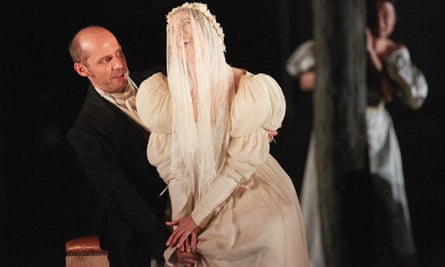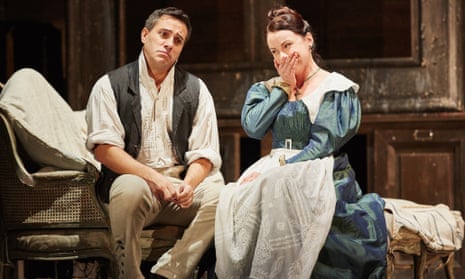David McVicar’s production of Mozart’s Le Nozze di Figaro has proved wonderfully malleable since it was first seen in 2006, carefully accommodating the shifts in emphasis brought to it by successive casts, while retaining its interpretative integrity. Its latest revival, directed by McVicar’s assistant Leah Hausman, offers new shades of meaning and insight.
Ellie Dehn’s Countess is more overtly attracted to Kate Lindsey’s lustful Cherubino than her predecessors and therefore more fallible. The relationship between Ann Murray’s Marcellina and Carlo Lepore’s gruff Bartolo is sympathetically observed, where previous couples have tended to resort to caricature. And Anita Hartig’s Susanna is knowing and serious rather than spirited: she and Dehn have similar voices, warm and creamy, which makes the mistaken identities of act four entirely credible.

At the centre of it all, however, lies a grand confrontation between Erwin Schrott’s Figaro, and Stéphane Degout’s Count. Schrott’s interpretation has also changed somewhat since he last sang the role here. There’s less political anger, more manipulative wit: he sings Se Vuol Ballare with bemused irony rather than scorn, not so much as a manifesto, but as a prelude to a game that turns increasingly dangerous. Degout, a wonderfully patrician singer with a handsome, ringing tone, has an innate charm that can turn to menace in a flash: it’s a superbly accomplished characterisation.
There’s luxury casting elsewhere. Heather Engebretson does fine things as Barbarina, and Krystian Adam, better known for Monteverdi than Mozart, makes a nicely effete Basilio. Conductor Ivor Bolton favours extreme speeds, and sometimes drives it a bit hard. The few moments of awkward stage-pit coordination on opening night should sort themselves out during the run. It’s a fine revival, beautiful and touching in equal measure, as Figaro always should be.
- At the Royal Opera House, London, until 14 October. Box office: 020-7304 4000. The performance on 5 October will be live in cinemas across the UK and Europe.

Comments (…)
Sign in or create your Guardian account to join the discussion